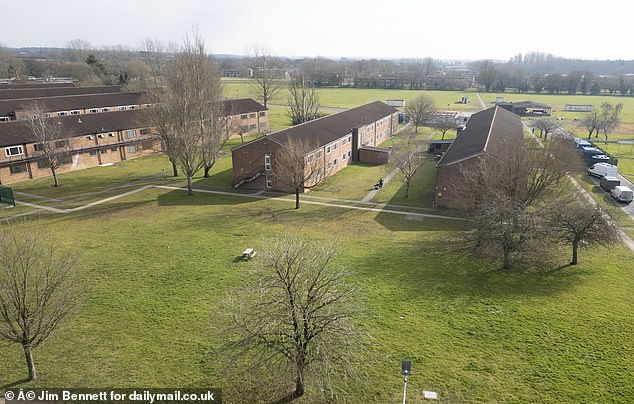For many residents around the MDP Wethersfield area in Essex, it feels like déjà vu.
They were told this controversial site would be shut down. Now, instead of closure, it’s expanding.
And this time, the announcement came not from a Conservative government—but from Prime Minister Sir Keir Starmer, who had earlier promised to close it for good.
More Asylum Seekers Expected at Former RAF Base
The latest move by the Home Office reveals that the Wethersfield site will now house an additional 445 asylum seekers, bringing the total to 1,245.
That’s a 50 percent increase from the current capacity of 800 people already staying there.
Locals were quietly notified just yesterday through an official update, causing both confusion and frustration.
Starmer’s Past Promise Comes Back to Haunt Him
During the run-up to last year’s General Election, Starmer had made a clear commitment—he said disused military sites like Wethersfield would no longer be used for housing asylum seekers.
In an interview with ITV, he stated plainly: “I do think Wethersfield needs to close.”
But now, that vow appears to have been shelved.
Government Explanation Offers Little Comfort
In response to criticism, the Home Office emphasized that these new accommodations are only temporary.
According to their statement, the additional beds will be used “if called upon” and only until the broader asylum housing system can catch up with rising demand.
They say the number of residents at Wethersfield will be brought back down to 800 as soon as possible.
Essex Residents and MPs Push Back
The decision hasn’t gone unnoticed or unchallenged.
James Cleverly, a Conservative MP whose Braintree constituency includes Wethersfield, voiced strong opposition.
As a former Home Secretary, Cleverly says he had previously secured a cap on the number of asylum seekers allowed there.
Now he’s dismayed to see those limits disregarded, stating bluntly: “I remain opposed to any increase.”
Political Blame Game Heats Up
Critics of the Labour government are accusing Starmer and Home Secretary Yvette Cooper of hypocrisy.
Chris Philp, the current shadow home secretary, labeled it a “U-turn,” saying the government is in chaos.
He also pointed to a spike in small boat crossings—nearly 4,500 in the past month alone—as proof that the new administration has no effective strategy after scrapping the Rwanda deportation plan.
Migrant Advocates Voice Their Concerns
Interestingly, criticism isn’t coming just from the political right.
Steve Smith, who leads the charity Care4Calais, took issue with the government’s backpedal for an entirely different reason.
He argued that continuing to house asylum seekers at a remote site like Wethersfield only adds to their distress, describing it as a place that causes “anxiety and despair.”
Legal Challenges and Living Conditions
This isn’t the first time the site has raised red flags.
Earlier this year, a High Court judge ruled that former Home Secretary Suella Braverman had acted unlawfully by placing three men at Wethersfield.
Those individuals described the environment as “prison-like,” and they stayed there between July 2023 and February 2024.
Local Infrastructure Struggles to Cope
Beyond legal and political ramifications, there’s the issue of basic infrastructure.
Graham Butland, leader of Braintree District Council, stressed that Wethersfield is simply too rural to handle such a large group of people.
Public services, transportation, and local resources are all stretched thin, making large-scale asylum housing difficult to manage.
Government Defends Its Position
Despite mounting backlash, the Home Office maintains that everything is being done by the book.
They insist that any use of sites like Wethersfield complies with relevant planning regulations.
They also claim to be working closely with local authorities to manage accommodation needs safely and responsibly.
What Comes Next?
With pressure mounting from both sides of the aisle—and from advocacy groups on the ground—many are now asking what the future holds for Wethersfield.
Will the increase in asylum seekers be truly temporary?
Will the Prime Minister eventually make good on his original pledge to close the site?
Or is this a sign of a broader shift in Labour’s migration policy?
The public, especially those in Essex, will be watching closely.
